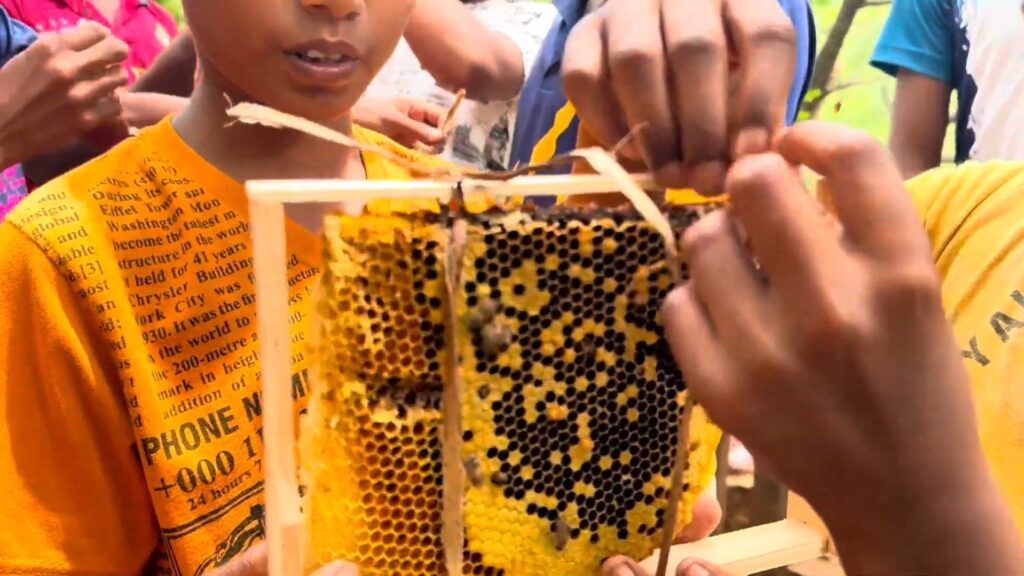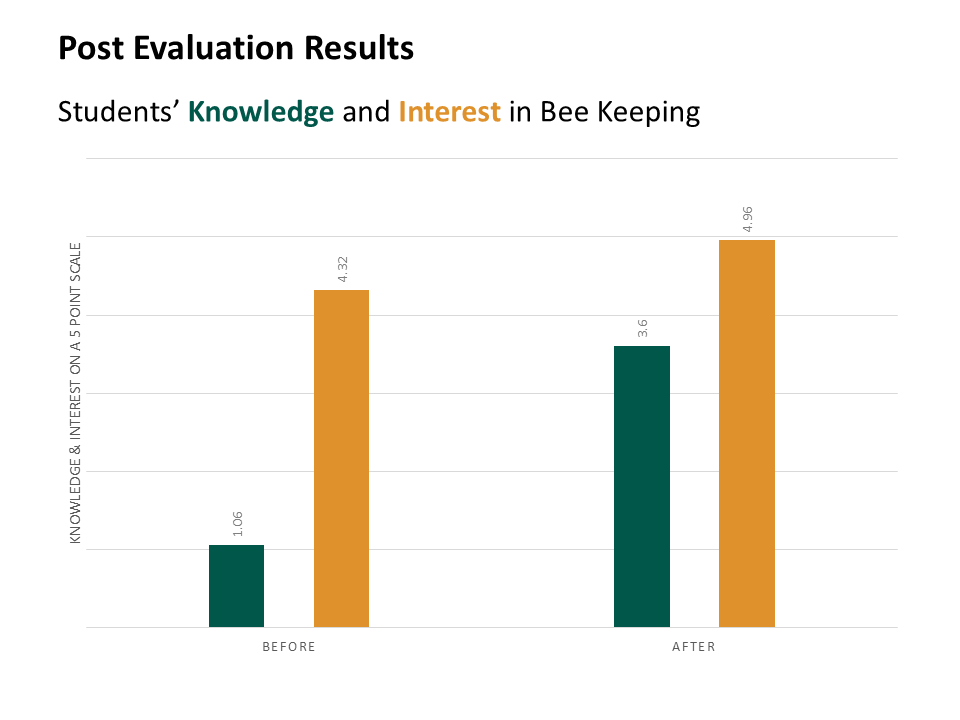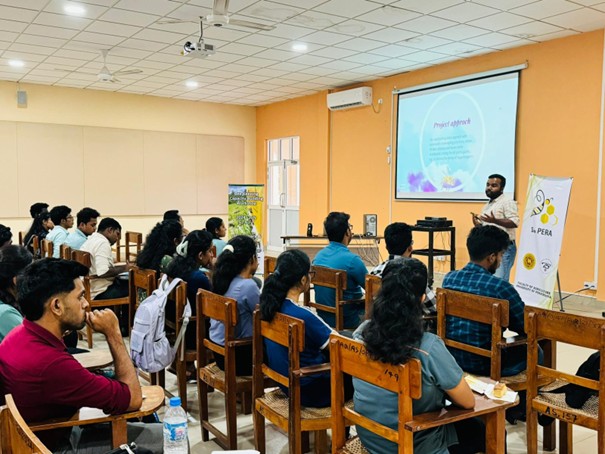Beekeeping plays a crucial role in enhancing livelihoods and promoting biodiversity. It provides honey and beeswax, offering a sustainable source of income for marginalized communities, particularly in rural areas. When practiced in harmony with the environment, sustainable beekeeping helps preserve plant diversity, improve agricultural productivity, and support ecosystem health through pollination.
Upcountry Sri Lanka holds high potential for beekeeping, but it has not yet reached its full potential as a livelihood strategy. There is a lack of awareness, technical knowledge, and institutional support. Existing beekeeping practices are often traditional and not optimized for modern efficiency or environmental sustainability. Many young people perceive it as an outdated or unprofitable practice. We set out to change this by engaging young people, developing skills, and improving market accessibility, to unlock beekeeping’s full potential for both economic empowerment and ecological conservation.
Equipping young beekepers with skills for success
We are a group of researchers with diverse expertise working on sustainable food systems and enhancing livelihoods while promoting biodiversity in Sri Lanka’s upcountry regions. Our Empowering Marginalized Beekeepers In Sri Lanka project focused on marginalized youth living in forest areas (Meemure and Ududumbara). We ran trainings to provide them with skills in beekeeping, hive management, and biodiversity conservation. The project has helped 60 young people .
The workshops were conducted in collaboration with the Bee PERA society of the University of Peradeniya and governmental institutes (e.g. Divisional Secretariat Office in Ududumbara and Bee Development Unit of the Department of Agriculture, Sri Lanka). With SLU and SIANI’s support, this program assisted the beekeepers not only with practical skills, but also bee colonies, beekeeping tools, and hands-on experience in managing bee colonies and addressing environmental challenges.


